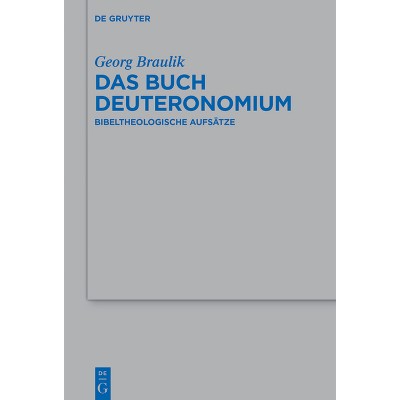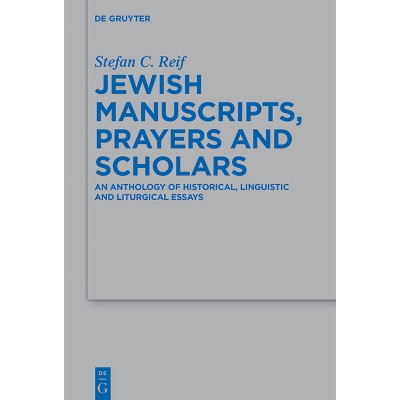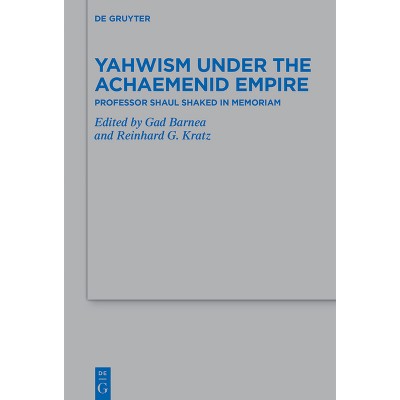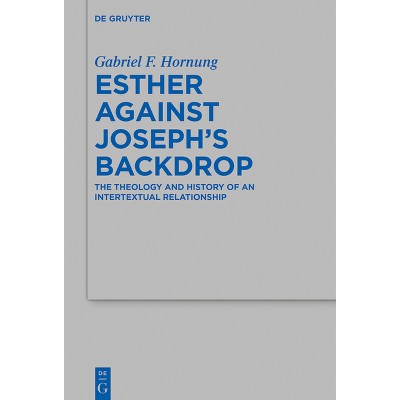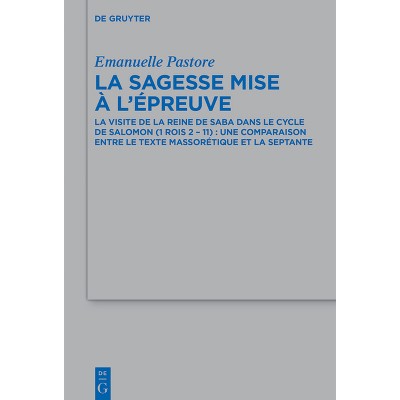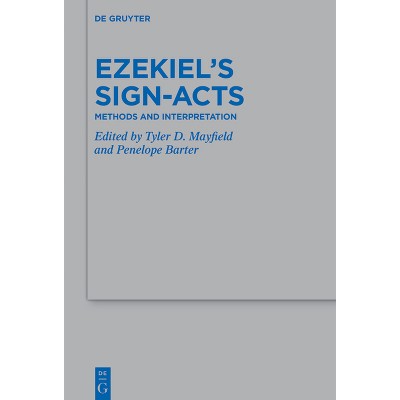Speaking to Job in Greek - (Beihefte Zur Zeitschrift Für die Alttestamentliche Wissensch) by Maximilian Häberlein (Hardcover)

$120.99 when purchased online
Target Online store #3991
About this item
Highlights
- This study investigates the Old Greek translation of Job regarding its text, Vorlage, translation technique, literary contexts, and theological profile.To situate OG Job within its ancient contexts, both the strategies employed by the translators and the literary profile of the translated text have to be taken into account.
- About the Author: Maximilian Häberlein, Universität of Würzburg, Germany.
- 451 Pages
- Religion + Beliefs, Biblical Criticism & Interpretation
- Series Name: Beihefte Zur Zeitschrift Für die Alttestamentliche Wissensch
Description
About the Book
The Old Greek translation of Job has long challenged scholars. How can the difference in length, literary profile, and theology be described? This study investigates text, translation technique, literary contexts, and theological profile of God'sBook Synopsis
This study investigates the Old Greek translation of Job regarding its text, Vorlage, translation technique, literary contexts, and theological profile.To situate OG Job within its ancient contexts, both the strategies employed by the translators and the literary profile of the translated text have to be taken into account. Thus, an approach is employed encompassing a thick description of translational strategies; and a reading of the translated text in its own right. This framework is applied in an investigation of God's answer to Job in OG Job 38:1-42:6. The results show that the translators worked from a Vorlage similar to, but not fully identical with MT, and produced a coherent, stylized text. The transformations undertaken, including double translations, intertextual renderings, minuses, small-scale rewritings and paraphrases, can be situated in an environment influenced by Greek educational and philological practices, but are also deeply indebted to Jewish scribal traditions. While not introducing sweeping theological changes, the translation nevertheless shows a tendency to emphasize divine sovereignty. The study thus contributes to a deeper understanding of this important witness to the book of Job an Jewish literature in the Hellenistic period.
About the Author
Maximilian Häberlein, Universität of Würzburg, Germany.Dimensions (Overall): 9.21 Inches (H) x 6.14 Inches (W) x 1.13 Inches (D)
Weight: 1.92 Pounds
Suggested Age: 22 Years and Up
Series Title: Beihefte Zur Zeitschrift Für die Alttestamentliche Wissensch
Sub-Genre: Biblical Criticism & Interpretation
Genre: Religion + Beliefs
Number of Pages: 451
Publisher: De Gruyter
Theme: Old Testament
Format: Hardcover
Author: Maximilian Häberlein
Language: English
Street Date: September 23, 2024
TCIN: 94141908
UPC: 9783111397443
Item Number (DPCI): 247-42-5220
Origin: Made in the USA or Imported
Shipping details
Estimated ship dimensions: 1.13 inches length x 6.14 inches width x 9.21 inches height
Estimated ship weight: 1.92 pounds
We regret that this item cannot be shipped to PO Boxes.
This item cannot be shipped to the following locations: American Samoa (see also separate entry under AS), Guam (see also separate entry under GU), Northern Mariana Islands, Puerto Rico (see also separate entry under PR), United States Minor Outlying Islands, Virgin Islands, U.S., APO/FPO
Return details
This item can be returned to any Target store or Target.com.
This item must be returned within 90 days of the date it was purchased in store, shipped, delivered by a Shipt shopper, or made ready for pickup.
See the return policy for complete information.
Trending Non-Fiction


$12.54
MSRP $22.00
Save $5 when you spend $25 on select books
4.7 out of 5 stars with 20 ratings


$10.84
MSRP $15.99
Save $5 when you spend $25 on select books
4.9 out of 5 stars with 12 ratings

$20.75 - $21.99
MSRP $21.99 - $32.50 Lower price on select items
Save $5 when you spend $25 on select books on select items
4.6 out of 5 stars with 9 ratings

$18.71
MSRP $34.99
Save $5 when you spend $25 on select books
5 out of 5 stars with 9 ratings
